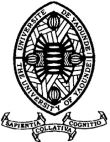Attitudes of Rwandan University Students towards HIV
Attitudes des Étudiants des Universités Rwandaises à l’Égard du VIH
DOI:
https://doi.org/10.5281/hra.v2i9.5971Keywords:
HIV, attitudes, university students, Rwanda.Abstract
RESUME
Introduction. Les attitudes par rapport au VIH-sida varient en fonction de la scolarité des personnes, de la religion, du statut socioéconomique et du fait d’avoir connu ou non une personne vivant avec le VIH. L’objectif de notre étude était de décrire les attitudes des étudiants universitaires Rwandais à l’égard du VIH. Méthodologie. Il s’agit d’une étude quantitative transversale, réalisée de Novembre à Décembre 2020 portant sur les attitudes à l’égard du VIH des étudiants issus de deux universités de la province du Nord du Rwanda : Institut d’enseignement supérieur de Ruhengeri (INES-Ruhengeri : 2 816 étudiants) et Ruli Higher Institute of Health (RHIH : 400 étudiants). Résultats. Nous avons étudié 644 participants dont l’âge moyen était de 23,5 ans pour un sex ratio de 0,4. Le test de khi carré s’est révélé significatif au seuil de signification alpha = 0,05, sauf pour la catégorie de l’acceptabilité sociale ou non des patients vivant avec le VIH (PVVIH), où aucune différence n’a été révélée (valeur p : 0,238) en rapport avec le niveau de connaissances. Par ailleurs, 70,5 % des étudiants de la catégorie des connaissances moyennes désapprouvaient l’idée de culpabiliser les PVVIH, contrairement à 60,6 % de la catégorie des très faibles connaissances qui acceptaient la culpabilisation de ces personnes. Conclusion. L’acceptabilité sociale des PVVIH est présente surtout dans la catégorie des étudiants ayant un bon niveau de connaissances sur le VIH-SIDA.
ABSTRACT
Introduction. Attitudes towards HIV-AIDS vary according to a person's education, religion, socio-economic status and whether or not they have known someone living with HIV. The aim of our study was to measure the attitudes of Rwandan university students towards HIV. Methodology. This was a cross-sectional quantitative study conducted from November to December 2020 on attitudes towards HIV among students at two universities in the northern province of Rwanda: Institut d'Enseignement Supérieur de Ruhengeri (INES-Ruhengeri: 2,816 students) and Ruli Higher Institute of Health (RHIH: 400 students). Results. We enrolled 644 participants with a mean age of 23.5 years and a sex ratio of 0.4. The chi-square test was significant at the significance level alpha = 0.05, except for the category of social acceptability or not of PLHIV, where no difference was revealed (p value: 0.238) in relation to the level of knowledge. In addition, 70.5% of students in the medium knowledge category disagreed with the idea of making PLHIV feel guilty, unlike 60.6% in the very low knowledge category, who accepted making PLHIV feel guilty. Conclusion. The social acceptability of PLWHA is present mainly in the category of students with a good level of knowledge about HIV/AIDS.
References
Adrien, A., Beaulieu, M. et Leaune, V. (2013). Trends in attitudes toward people living with HIV, homophobia, and HIV transmission knowledge in Quebec, Canada (1996, 2002, and 2010). AIDS Care, 25 (1), 55-65.
Alawad, M., Alturki, A. et Aldoghayyim, A. (2019). Knowledge, Attitudes, and Beliefs about HIV/AIDS and People Living with HIV among Medical Students at Qassim University in Saudi Arabia. International Journal of Health Sciences, 13 (5), 22-30.
Alim, S. S., Alelyani. A. M. et Aldeen, A. M. Z. (2017). Knowledge and Attitude of HIV/AIDS Infection Among Medical Students At The Faculty of Medicine, Taif University, Taif, Saudi Arabia. Int J Med Res Prof, 3 (4), 64-69.
Carey, M. P. et Schroder, K. E. (2002). Development and Psychometric Evaluation of the Brief HIV Knowledge Questionnaire. AIDS Education and Prevention, 14 (2), 172-182.
Inungu, J., Mumford, V. et Younis, M. (2009). HIV knowledge, attitudes and practices among college students in the United States. Journal of Health and Human Services Administration, 32 (3), 259-277.
Iwoi, D. M. W., Nde, P. F., Yuh, E., Kwenti, E. T., Tshimwanga, E. K., Achiri, D. T. et Djunda, K. E. (2017). Assessment of the Level of Knowledge, Attitude, and Practise with Regard to Care of People Living with HIV/AIDS among Nursing and Midwifery Students in Fako, Cameroon. World Journal of AIDS, 7 (1), 1-15.
Leyva-Moral, J. M., Terradas-Robledo, R., Feijoo-Cid, M., Dios-Sánchez. R., Mestres-Campus., L., Lluva-Castano, A. et Comas-Serrano, M. (2016). Attitudes to HIV and AIDS among students and faculty in a School of Nursing in Barcelona (Spain): a cross-sectional survey. Collegian, 24 (6), 593-601.
Linguissi, L. S. G., Yombi, R. N. O. et Nkenfou, C. N. (2018). Knowledge on HIV/AIDS among Students of the Faculty of Health Sciences, Brazzaville, Republic of Congo. American Journal of Epidemiology and Infectious Disease, 6 (1), 7-13.
Lui, P. S. C., Sarangapany, J. et Begley, K. (2014). Medical and Nursing Students Perceived Knowledge, Attitudes, and Practices concerning Human Immunodeficiency Virus. ISRN Public Health, 1-9, http://dx.doi.org/10.1155/2014/975875.
Maswanya, E., Moji, K., Aoyagi, K., Yahata, Y., Kusano. Y., Nagata, K. et Izumi, T. (2000). Knowledge and attitudes toward AIDS among female college students in Nagasaki, Japan. Health Education Research, 15 (1), 5-11.
Neha, S et Xiao, Z. (2017). Knowledge, Attitude and Practice Regarding HIV/AIDS among Students in China. World Journal of AIDS, 7, 247-259.
Ouzouni, C. et Nakakis, K. (2012). HIV/AIDS knowledge, attitudes and behaviours of student nurses. Health Science Journal, 6 (1), 129-150.
Soumahoro, M-K., Attoh-Touré, H., N’Dri, K. M., Mian, N. A., Diomandé, M., Koné, C. J. et Ouattara, A. (2019). Knowledge, attitudes, perception and behaviors of HIV/AIDS among end-cycle students in Cote d’Ivoire. Journal of Public Health and Epidemiology, 11 (5), 108-113.
Tung, W-C., Hu, J. et Davis, C. (2008). Knowledge, attitudes and behaviors related to HIV and AIDS among female college students in Taiwan. Journal of Human Behavior in the Social Environment, 17 (3/4), 361-375.
Downloads
Published
How to Cite
Issue
Section
License
Copyright (c) 2024 Oscar Labra, Marthe Mukeshimana, Augustin Ependa

This work is licensed under a Creative Commons Attribution-NoDerivatives 4.0 International License.
Authors who publish with this journal agree to the following terms:
- Authors retain copyright and grant the journal right of first publication with the work simultaneously licensed under a Creative Commons Attribution License CC BY-NC-ND 4.0 that allows others to share the work with an acknowledgement of the work's authorship and initial publication in this journal.
- Authors are able to enter into separate, additional contractual arrangements for the non-exclusive distribution of the journal's published version of the work (e.g., post it to an institutional repository or publish it in a book), with an acknowledgement of its initial publication in this journal.
- Authors are permitted and encouraged to post their work online (e.g., in institutional repositories or on their website) prior to and during the submission process, as it can lead to productive exchanges, as well as earlier and greater citation of published work










